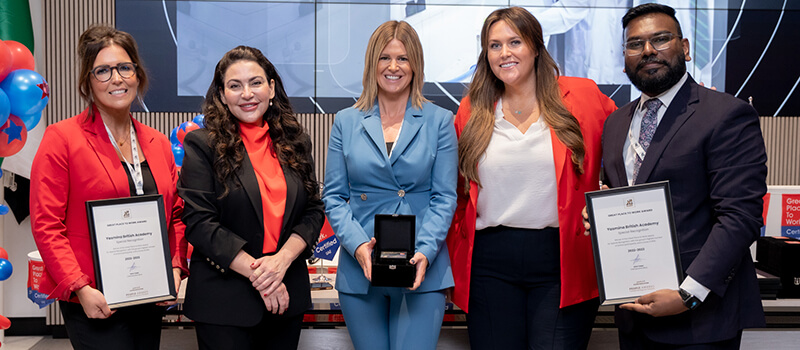How do I improve my English? How some international students improved their English
Introduction
If you are an international student you may know that learning English is very important. Here are some tips how to improve your English.
Students seeking advice for improving their English skills had the following suggestions.
When you’re trying to improve your English, it’s important to have a positive attitude. A positive attitude will help you be more motivated and keep you going when things get hard.
Students who have improved their English skills said the following:
- Practice with a friend
- Watch videos and listen to podcasts in English
- Study a little every day
- Review as you go along
1. Join an English club or group
Joining an English club or group is a great way to learn new words and expressions, practice your English, make friends and meet people from different cultures.
Some clubs are only for students of a specific university while others are open to everyone. If you don’t know where to start looking, ask at the university’s international office or student services if they can recommend any clubs that might be worth joining.
You should also make sure that you know the rules of each club before joining so that you don’t get into any trouble later on!
2. Practice with a friend
If you have a friend who is more advanced than you, this can help you to improve your English. The same goes for someone who is at your level of English and also for someone that is lower than yours. For example, if you are already confident in speaking but want to improve writing, then practice with someone who writes better than you do.
A native speaker of the language always teaches best how native speakers use their own language, so if possible, find one! Of course it’s not always easy or possible to find a native speaker for free when studying abroad as an international student (or even as an expat), but if there are opportunities and resources available try them out!
It might be very helpful in improving my spoken English if I could speak with native speakers over Skype or other video platforms on regular basis – either individually or in small groups (English learners). This would give me the opportunity to practice my listening skills while correcting errors made by myself and others during conversation while also allowing us all time afterwards where we could exchange feedback on what worked well versus what didn’t work well enough so that each person left feeling satisfied with their contribution towards overall success during our next session together.”
3. Watch videos and listen to podcasts in English
- Watch videos and listen to podcasts in English.
- Watch short videos and listen to podcasts.
- Watch videos and listen to podcasts on topics that interest you.
- Watch videos and listen to podcasts that are at your level, then try watching ones that are at a higher level (this will help you understand what native speakers say).
4. Study a little every day
Consistency is key to language learning. It’s better to study little everyday than a lot once in a while. The brain needs time to absorb new information, so the more you practice, the better your memory will be (and it’s easier to remember what you learned if it’s fresh).
As an international student, you’re probably not used to studying every day—in fact, some of your friends might not even have been used to it before they came here! If this is true for them too, then they may also find themselves struggling with their schoolwork. That doesn’t mean there’s anything wrong with them; in fact it shows how smart they are! We all need time and patience when we’re learning something new (and especially something as complex as English).
5. Review as you go along
Review as you go along.
When you learn a new word, write it down and add it to your vocab list. Review your vocabulary list regularly so that you can keep track of what needs the most work. Check spelling and grammar in what you write, even if it’s just for practice. Remember that the more practice with English, the better!
Review old notes and try to answer them again after some time has passed (a week or two). This way, not only do you review what was learned previously but also get a chance at learning something new or improving at something already known about English language learning!
6. Have a positive attitude
The last step to improving your English is to have a positive attitude.
A positive attitude helps you learn more effectively and enjoy the process of learning more! It is important to be positive about your own learning process, but it is equally important to avoid negative thoughts about others, including yourself. If you can keep this in mind while studying, your time spent studying will be much more effective and enjoyable!
To have a positive attitude when you are learning English:
- Stay motivated and committed by setting goals for yourself that are challenging but achievable. By setting goals for yourself (like passing an exam), you’ll know what exactly needs improvement and what areas of study need focus on next week/month/year etc.. This will help motivate you through long periods of study as well as short ones (such as preparing for an upcoming test).
- Be aware of how far along with progress has been made so far – this lets us see how much we’ve learned since starting our journey!
To stay motivated even when not actively studying or preparing for tests:
Learning another language is not easy but these tips will help you get there
Learning another language is not easy but these tips will help you get there!
Just to be clear, this post is intended for those who are learning English as a second language. If you’re an English native speaker, then you probably have nothing to worry about!
- Don’t give up. There’s no such thing as perfect; we all make mistakes and there will always be something new to learn, so don’t beat yourself up over it and just keep trying! The more you practice speaking in English, the better your pronunciation will become (with practice).
- Don’t worry about making mistakes — everyone does! It’s perfectly fine if you forget how to say something or mispronounce a word sometimes because everyone makes mistakes when they speak another language (and even if they don’t). Just try your best and don’t let embarrassment get in the way of expressing yourself through language; if someone doesn’t understand what you’re saying tell them politely what word(s) might help clarify what it was that confused them so that way next time around things will go smoothly for sure without any confusion whatsoever 🙂 This also goes back to tip number one above where I said don’t give up – remember that everybody makes mistakes even native speakers do too so there really isn’t any reason why not try again with confidence knowing full well there won’t be any consequences.”
Conclusion
Thanks for checking out this article on how to improve your English! We hope that you found some helpful tips and tricks here to improve your language skills.







